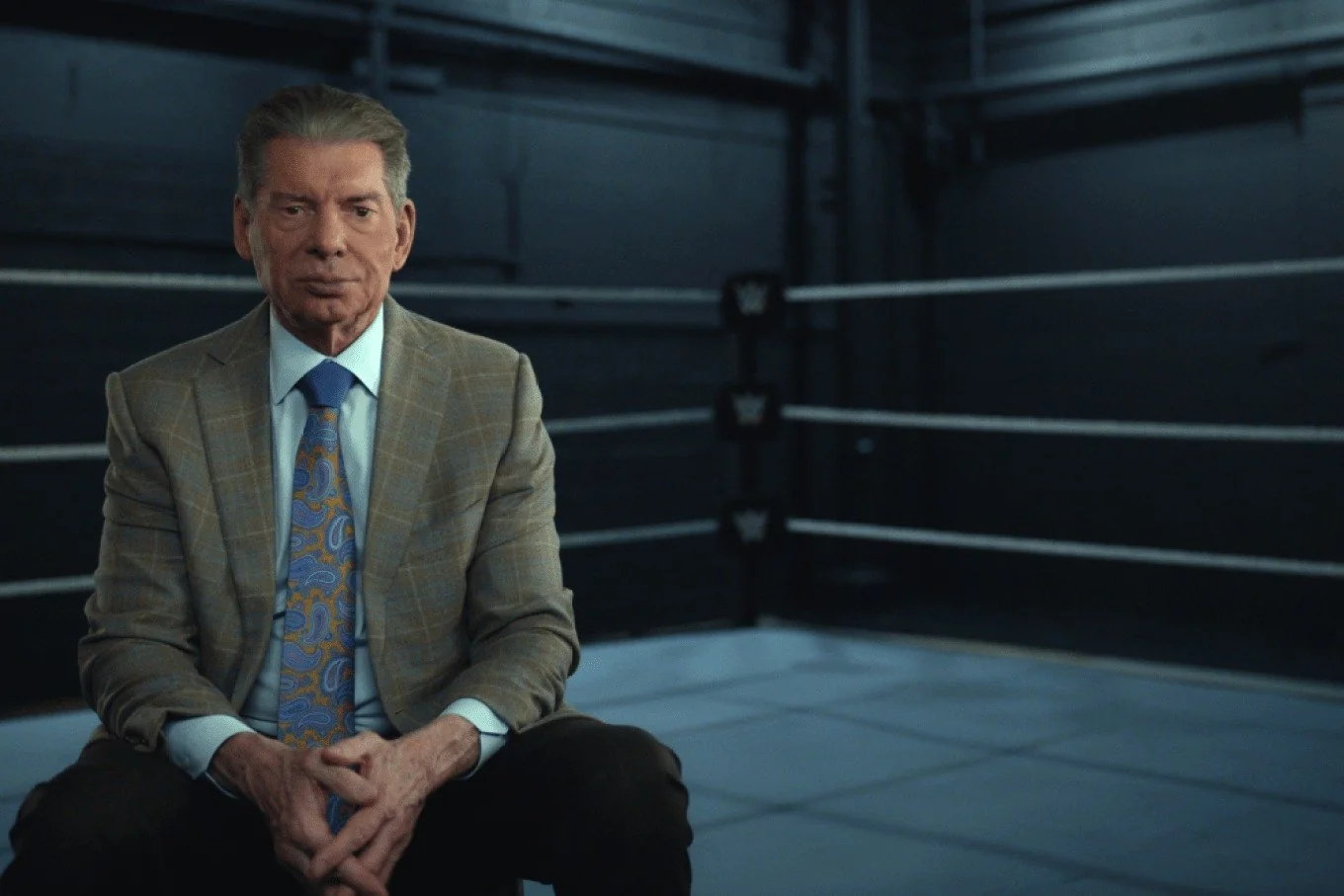
In a recent podcast episode that has stirred considerable buzz in the wrestling community, Conrad Thompson, a prominent wrestling commentator and podcast host, offered a scathing critique of the new WWE series on Netflix. Referring to the show as a “double-shovel burial,” Thompson’s comments have ignited debates among fans and industry insiders about the portrayal of WWE’s history and its influential figure, Vince McMahon.
The WWE-Vince McMahon series, which premiered on Netflix to much anticipation, promised an in-depth look at the life and legacy of one of professional wrestling’s most iconic figures. Vince McMahon, the patriarch of WWE and a key architect of modern professional wrestling, has long been a polarizing figure. His influence on the sport is undeniable, but so too are the controversies that have surrounded his career. The series aimed to provide a comprehensive narrative, blending personal anecdotes, career highlights, and critical examination of his tenure.
However, Conrad Thompson’s assessment of the series was far from flattering. On his popular podcast, Thompson described the show as a “double-shovel burial,” a term borrowed from wrestling vernacular that implies an exceptionally harsh critique or dismissal. According to Thompson, the series not only failed to present McMahon in a balanced light but also seemed to undermine his achievements and contributions to the wrestling world.
Thompson’s critique centered on several key points. First, he argued that the series lacked nuance in its portrayal of McMahon, focusing too heavily on the negative aspects of his career without giving sufficient weight to his successes and the transformative impact he had on professional wrestling. For Thompson, the series seemed to prioritize sensationalism over substance, choosing to highlight controversies and scandals rather than celebrating McMahon’s role in revolutionizing the industry.
Another major point of contention for Thompson was the series’ handling of WWE’s history and its internal dynamics. He felt that the show presented a one-dimensional view of the company’s evolution, neglecting the complexity of its growth and the significant achievements under McMahon’s leadership. By emphasizing the more contentious elements of WWE’s past, the series, in Thompson’s view, did a disservice to the broader context of McMahon’s impact on the sport.
Moreover, Thompson’s use of the term “double-shovel burial” was also a reflection of his broader frustration with how the wrestling industry’s legends are sometimes portrayed in media. He suggested that the series was part of a trend where historical figures are reexamined through a lens that often overshadows their contributions in favor of more sensational narratives. For Thompson, this approach not only distorts historical facts but also disrespects the legacy of influential figures like McMahon.
The reaction to Thompson’s comments has been mixed. While some fans and industry insiders agree with his critique, feeling that the series was overly critical and lacking in fairness, others believe that the show was a necessary corrective to the often idealized portrayals of wrestling legends. The debate highlights a broader discussion about how historical figures in professional wrestling are remembered and represented, particularly in a media landscape that increasingly demands sensational content.
In response to the backlash, the producers of the series have defended their work, emphasizing their commitment to presenting an honest and comprehensive portrayal of Vince McMahon. They argue that the show sought to balance the complexities of McMahon’s career with the controversies that have shaped his public image.
As the discussion around the WWE-Vince McMahon series continues, Conrad Thompson’s “double-shovel burial” comment serves as a potent reminder of the ongoing debates within the wrestling community about legacy, representation, and the role of media in shaping public perception. Whether one agrees with Thompson’s critique or not, it underscores the challenges of presenting a nuanced view of a figure as complex and influential as Vince McMahon.
Leave a Reply